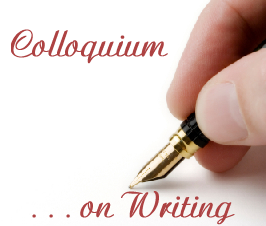
Spelling errors are one of my all-time peeves. Why? Because in a matter of seconds, you can refer to a dictionary to see if you are spelling a word correctly. I believe that taking the time to double-check a word’s correct spelling not only evidences a writer’s respect for his/her readers, but also for him/her self. It shows that you take pride in your work product, are detail-oriented, and strive to make the best possible impression at all times.
I use Dictionary.com regularly, in addition to Thesaurus.com, but am guilty of spelling infractions from time to time, especially when two words that sound the same have different spellings and my spell-checker does not comprehend the difference.
Among the misspellings that drive me nuts are:
- Loose instead of lose. I see this error all the time! Here’s a good way to remember the distinction between the two words: You can place loose change in your pocket, but on the whole, if the pocket has a hole, you might lose all of the coins.
- Wierd instead of weird.
- Ackward instead of awkward.
- A costumed instead of accustomed.
- Invision instead of envision.
- Somewheres or anywheres instead of somewhere or anywhere.
- Harrass instead of harass.
- Here instead of hear.
- Past away instead of passed away (which is a phrase I detest and never use, so this error makes me doubly cranky.)
According to Business Grammar, Style & Usage: The Desk Reference for Articulate and polished Business Writing, Speaking & Correspondence, by Alicia Abell, the 30 words most often misspelled are:
- accessible
- accommodate
- acquaintance
- adviser
- bankruptcy
- calendar
- chargeable
- committee
- conscious
- consensus
- embarrass
- exaggerate
- feasible
- homemade
- indispensable
- judgment
- liaison
- manageable
- maneuver
- millennium
- necessary
- emission
- privilege
- recommend
- referral
- separate
- sizable
- suspicious
- tendency
- toward (not towards)
How accurate were your predictions about what words would appear on the list?
And what words do you have to double-check the spelling of each time you use them? What other words do you think should be included on the list?


12 Comments
The ones I can’t stand are
accept & except
their, there, they’re
to and too
You’re right. It’s great to check your spelling. This gets on my nerves as well.
I have to say that I always have to think twice about effect and affect.
Nice collection, I would also add “your” instead of “you are.”
I make a few spelling mistakes myself, but it is mostly because I find it really hard to revise my own work. I think you have listed the common mistakes people often make.
I have always been good at spelling and if I don’t know for sure how a word is spelled I totally look it up. My biggest peev is enunciation. I have a cow if someone says a common word wrong like library. If someone says libary, I make sure I correct them. Probably not the best way to make friends but it is fun to do this to my hubby. 😉
I just use “define:keyword” in google 🙂
Pingback: Fortnightly Link Train
I write my text, then do a copy paste in word, then right click and change all my red’s and green’s in the text.
what about my favorite?
effort vs. afford 😛
I’m an editor so words that are wrongly spelled irritates me. Merriam-Webster.com is a more accurate reference as it also shows if some words are hypehanated, spelled close or open. Just a tip.
Affect and Effect is probably one of my peeves.
Even though I am a writer, I never critique personal blogs. Business blogs and websites on the other hand are fair game! 😉
Never trust the spell checkers, as even the best can let through some huge blunders. Proofread, proofread and then proofread again!
Sarah :: Grammar and Spelling Tipss last blog post..Commas Part Three – Using Commas with Introductions
The ones I can’t stand are:
your -and- you’re
should of -instead of- should’ve
and it drives me absolutely NUTS when people write:
I resemble that remark, -rather than-
I resent that remark.
On another note, another pet peeve I have is when people don’t know when to use ‘me’ or ‘I’ within a conjunction like ‘and’ or ‘or’ – they use ‘I’ because they’ve been corrected so often by teachers who don’t even know the reason themselves, and subsequently use it wrong, and ‘correct’ others incorrectly. A rule of thumb I use is:
If you are referring to yourself within the subject of the sentence, use ‘I.’ If you are referring to yourself anywhere else, use ‘me.’
If in doubt it helps to think of it without the conjunction, as two separate sentences.
Example 1:
Incorrect: Tina and me went to the store.
(Without the conjunction: Tina went to the store. Me went to the store.)
Correct: Tina and I went to the store.
(Without the conjunction: Tina went to the store. I went to the store.)
Example 2:
Incorrect: It was drawn by Tina and I.
(Without the conjunction: It was drawn by Tina. It was drawn by I.)
Correct: It was drawn by Tina and me.
(Without the conjunction: It was drawn by Tina. It was drawn by me.)
Example 3:
Under a photo of two people there is a caption that reads: Tina and I. This is incorrect – because the implied sentence should read: [This is] Tina and ___. Since ‘Tina and ___’ is not part of the subject, the correct caption should read: Tina and me. (Without the conjunction: [This is] Tina. [This is] me.)
evilgeniuss last blog post..Who?